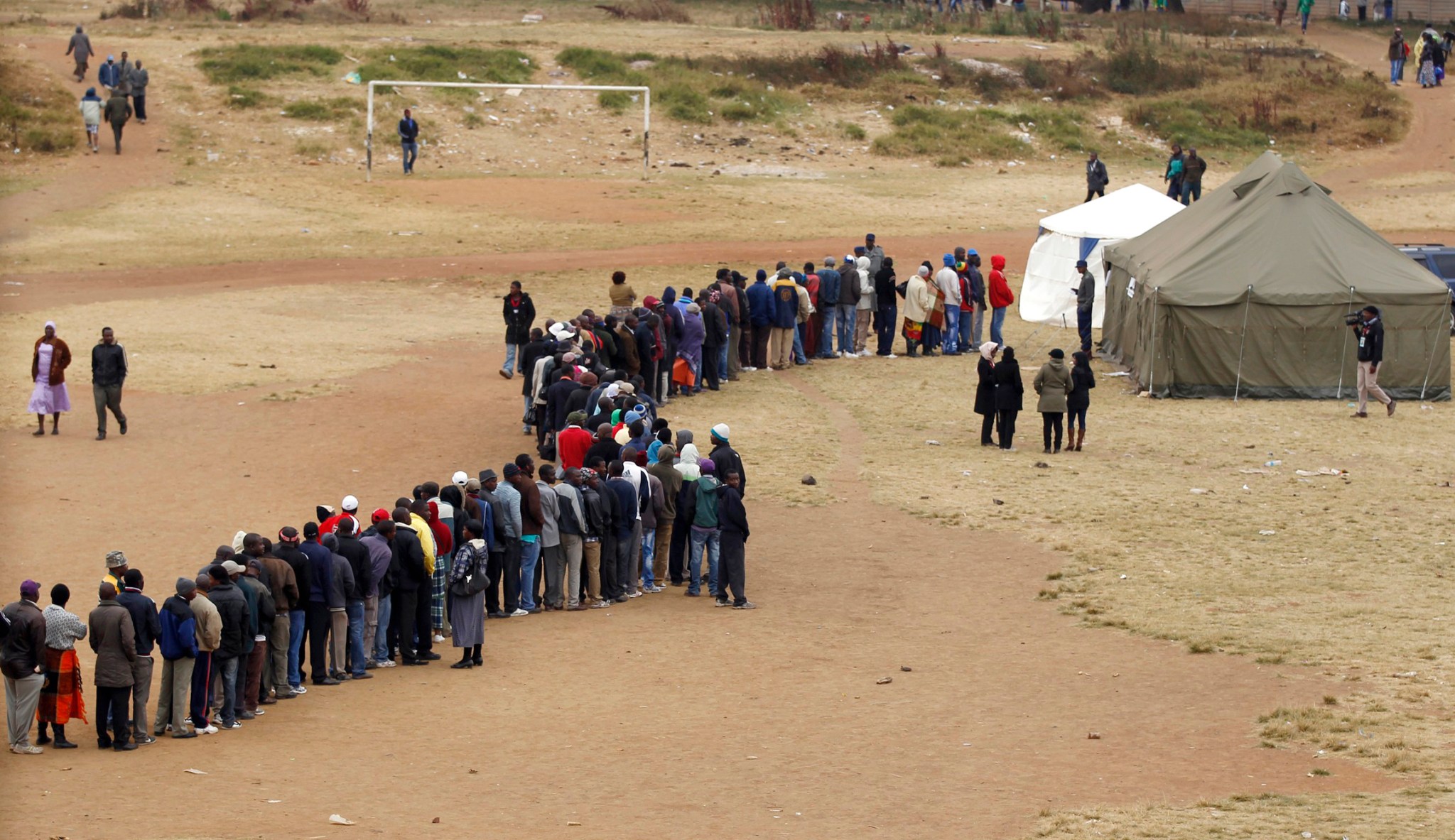On July 30, 2018, Zimbabweans will go to the polls to participate in the most significant elections of their lifetime. Former President Robert Mugabe’s name will not appear on the presidential ballot for the first time since 1987, and voters will for once in a generation select their leaders from a new crop of candidates running for the presidency, parliament and local government.
Last November, Zimbabwe’s military forced out Mr. Mugabe from the presidency, and the ruling party, ZANU-PF, replaced him as leader shortly thereafter. The immediate beneficiaries of this change were the military generals who led the coup – several of whom later gained influential posts in government – and Mugabe’s former vice-president Emerson Mnangagwa who ascended to the presidency and the leadership of ZANU-PF.
Zimbabwe experienced nearly four decades of authoritarian rule under Mugabe’s leadership, which included economic degradation, political repression, and state-sponsored violence. The country has held several national and local elections since its independence in 1980, but Mugabe’s regime often utilized its stranglehold on political and military power and state resources to deliver victory to ZANU-PF.
The recent changes in political leadership within ZANU-PF, the military’s active role in removing Mugabe from power, and the recent passing of long-time opposition leader Morgan Tsvangirai have resulted in a much-transformed political landscape. Zimbabweans resultantly continue to express hope and trepidation about what the future holds for their country.
On June 14, the National Endowment for Democracy (NED) convened a half-day event on Zimbabwe’s in collaboration with IRI, National Democratic Institute (NDI), Solidarity Center, and the Center for International Private Enterprise (CIPE). Entitled “Assessing Zimbabwe’s Elections and Prospects for a Democratic Transition,” the event consisted of two separate panels of Zimbabwe experts and analysts who shared their thoughts on the country’s July elections and prospects for its future.
The first panel, moderated by NED’s Natalie Kay, included Elizabeth Lewis, IRI’s deputy director for Africa, Imani Countess, program director for Africa at Solidary Center, and Patrick Merloe, senior associate and director of electoral programs at NDI. Lewis highlighted recommendations from IRI and NDI’s recently released statement from its joint pre-election assessment mission, which included the need for the Zimbabwe Electoral Commission (ZEC) to produce the voter’s register in an analyzable format; publish a full list of official polling stations; and ensure a transparent ballot production process.
NDI’s Pat Merloe, meanwhile, reiterated the need for the aforementioned proposed reforms to occur as soon as possible, stating, “In the country context of Zimbabwe, 46 days in the blink of an eye because so much has to happen in order to make a credible process a reality.”
IRI and NDI are presently conducting an international election observation mission, which includes the just concluded pre-election assessment, long-term observers and analysts and a short-term observation on and around Election Day.
The latter part of the afternoon consisted of a panel, moderated by ICNL’s Irene Petras, on the prospects for a future democratic transition in Zimbabwe. Panelists included Dr. Ibbo Mandaza, executive director of SAPES Trust, Dr. Alex Magaisa, a prominent Zimbabwean activist and writer who is currently serving as a NED Reagan-Fascell Fellow in Washington, D.C., Lars Benson, regional director for Africa at CIPE, and Thomas R. Hastings, acting director of the Office of Southern African Affairs at the U.S. State Department.
During the discussion, Magaisa warned, “In trying to solve the economic crisis… we are also doing things that demonstrate more centralization of power, the desire to keep everything in-house,” and further explained “Zimbabwe needs ‘disruptive governance.’ We need to change completely.” One of fundamental suggestions addressed the necessity for stronger institutions in Zimbabwe, saying, “We must address the issue of balancing the personality of the leader and the institutions.”
As Zimbabwe approaches elections, the actions by all stakeholders in the remaining days will be even more critical to ensuring a free, fair and credible election outcome for the Zimbabwean people. This event served as an important resource for information about Zimbabwe’s current political context, the necessary reforms to deliver free, fair and credible, and the prospects for lasting change in the country.
Top